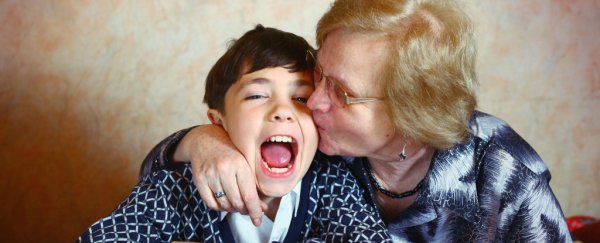Humans are living longer all the time thanks to advances in hygiene and medicine. But even before the industrial revolution, Homo sapiens were one of the longest living species on the planet. Why? As the latest episode of How Did We Get Here by the University of New South Wales (UNSW) explains, a lot of that longevity is thanks to our grandmothers.
Even though it's normal for large-bodied mammals to live longer than their smaller counterparts, humans are one of the rare mammals whose females live for years after menopause. Given traditional evolutionary theory, having individuals around sucking up resources when they're no longer able to contribute to the gene pool doesn't make a whole lot of sense. So what purpose do these grannies serve?
As evolutionary biologist Darren Curnoe explains in the video, they might have given humans the support they needed to become such a successful species. Back in hunter gatherer times, a third of humans died within the first few years of life. So those who did survive into old age were incredibly wise, and by staying alive to pass on their knowledge and help raise the next generation of children, they gave humans a survival advantage over other species.
And scientists believe that it's for this reason – thanks to our grandmothers – that old age seems to be programmed into our genomes, so that we're now able to live well into our 90s.
So what's changed now that we're no longer as close with our grandparents as we used to be? And how will an ageing population affects things? Watch the video to find out. And please, for science, go and call your grandma today.
UNSW Science is a sponsor of ScienceAlert. Find out more about their research.
